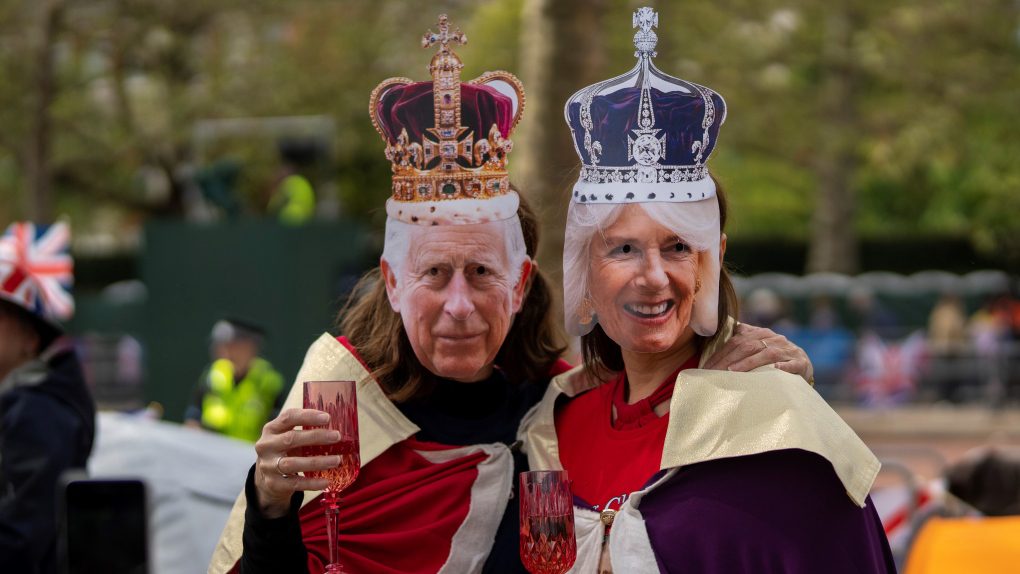Global Courant 2023-05-06 01:08:00
The recent spotlight on the royal family may lead to questions of lineage, and it turns out that many Canadians have some sort of royal connection.
When historical events happen, such as the coronation of King Charles, people tend to question their own personal histories, Ancestry.ca family historian Brad Argent told CTVNews.ca in an interview Friday.
Canada is home to a multitude of cultures, with people from many different backgrounds, including British. Argent said relationships with the royal family are common in Commonwealth countries such as Canada, where ancestors sometimes emigrated from Britain.
Recently, Argent said, people seem eager to know if they, too, are eligible for the throne, or have ties to other royal families around the world.
According to the Ancestry.ca team, 1 in 10 Canadians are connected to royalty.
CANADIAN FINDS HER CONNECTION
Canadian Ancestry user Christine Lewis Tats’ curiosity started at a young age.
She knew her grandfather had British roots, and she began to dig more into his background after inheriting some information from her family in Ontario. Through a process of research and help from Ancestry.ca, Tats found connections to England, Wales and Scotland, and eventually the royal family.
According to her research, Tats’ grandfather was connected to Edward Seymour, the 1st Duke of Somerset. Seymour was the brother of Jane Seymour, one of the wives of King Henry VIII (1491-1547) and mother of King Edward VI (1537-1553).
Argent said this kind of connection isn’t easy to find and it takes time to figure it out. He said he has been researching his own family line for decades because of the need to sift through a lot of information.
HOW TO START FAMILY SURVEY
“The first thing to do is write down what you know,” Argent said. “You start with yourself and build a tree: mom, dad, where they were born, when they got married.”
At some point, a person will run out of personal knowledge about their own lineage, which is when Argent says they should talk to the oldest person in their family.
“Ask them questions. Ultimately, you want to record this so you don’t have to get distracted writing things down,” he said.
Argent said that asking about the person’s parents, grandparents and great-aunts and uncles and then adding them to their family tree helps people visualize missing information.
At some point, family knowledge will run out, he said, and that’s where a person has to start confirming what they think they know.
From there he proposes people are starting to build that tree on Ancestry.casearch information through the site’s database of records.
Browsing birth records, censuses, and immigration statuses can confirm the family tree.
“Once you’ve done that, go back to that oldest person in the family and show them what you’ve discovered, because that will bring back more memories,” Argent said.
He said this is where a person needs to be more “forensic”.
“A name and a date on a tree is one thing,” he said. “The story of who that person is and how they live their lives is another story.”
Understanding an ancestor’s profession, where they lived and when can include details of how they lived, regardless of any connection to the nobility.
“If you get the occupations, it can pull you into the social history and you can get a sense of what their day was like. This is the work they did, this is the life they lived, and they suddenly become someone,” Argent said.
This is where a potential line to royalty can be drawn. Argent said an ancestor’s work can show whether they were educated and whether they had power.
“A lot of (our ancestors) were farmers or laborers or agricultural workers,” Argent said. “But every once in a while you come across an ancestor who has a slightly different role. Maybe it’s the ones who carry a certain amount of authority with them.”
These are people who held positions of power during their lives, such as municipal clerks, bailiffs or teachers. Even those who owned land, such as peasants (not agricultural labourers), could have royal connections.
WHAT TO DO IF YOU CANNOT ASK FAMILY ABOUT THEIR HISTORY
Because much family history is passed down orally, Argent said, sometimes parts of the story aren’t shared until a family member dies, or for other reasons. For example, in the case of adoption, a person may not have had a relationship with their biological family.
Knowing this, Argent encourages people to try to write down what they know and then come up with creative ways to make sense of the past.
“If you have a grandparent who has friends, talk to the friends. Maybe they remember something the grandparent doesn’t know,” he said. “If you’re the oldest person, I think it’s really important to write those things down[and]record your memories… Listen to those recordings and they’ll bring back more memories.”
When collecting this information, especially for those who have no connection to their blood relatives, Argent says some caution should be exercised. He suggests people take a DNA test, which can provide an idea of family history based on others who share the same lineage.
Digging up family history, while fun for some, can open wounds for others, he said.
“If you’re in that situation, where you have questions about your biological ancestry, (DNA testing) can give you answers, and it can give you answers very, very quickly. If you’re not emotionally prepared for that, it can be very difficult,” said Argent.
While it can take years to discover family history, Argent said during historic moments like the coronation, the need to understand can be even greater.
“There may be people right now who have a great connection to the royal family, who are sitting there watching the coronation tomorrow, and have no idea that a four- or five-time great-grandparent was a nobleman — possibly they can relate directly with royalties, they just won’t know.








